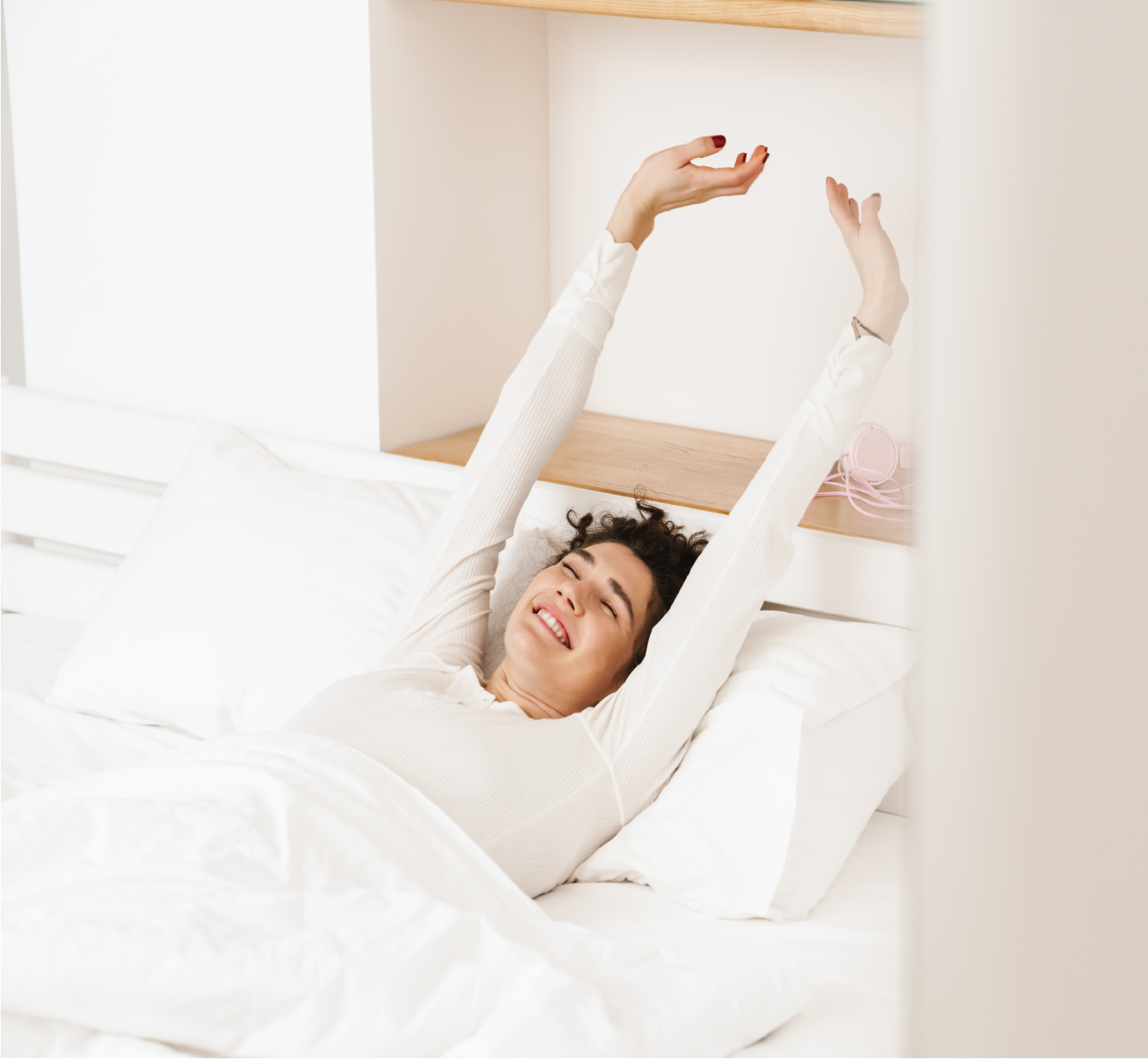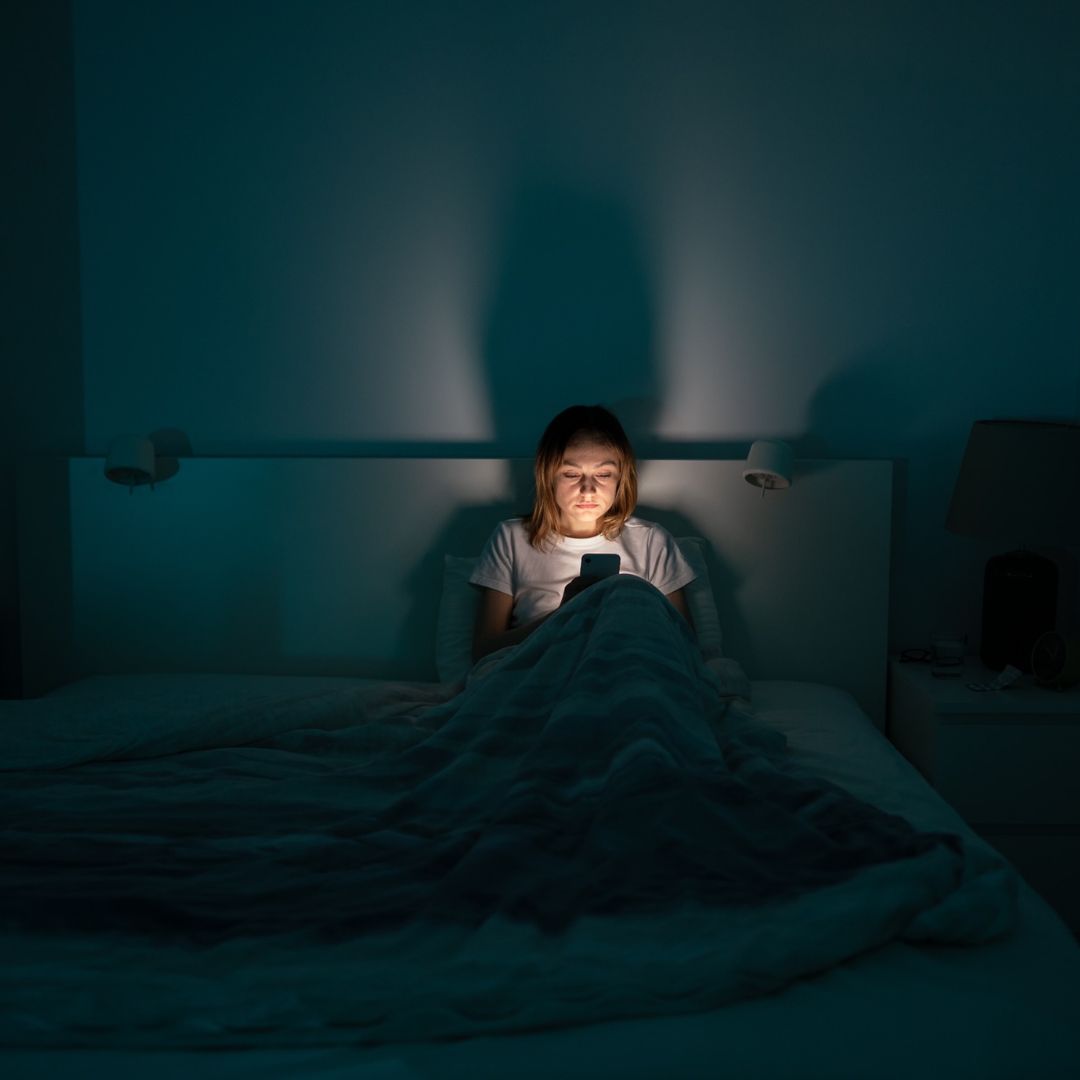Getting a good night's sleep is something we (obviously) care about. More so, falling asleep quickly can sometimes be a challenge, especially when our minds are racing or we're feeling restless. In this blog post, we'll explore five proven techniques to help you fall asleep faster and wake up feeling refreshed and rejuvenated.
1. Establish a Soothing Bedtime Routine:
Creating a relaxing bedtime routine can signal to your body and mind that it's time to wind down and prepare for sleep. Consider incorporating activities such as reading a book, taking a warm bath, or practicing gentle stretching or yoga. Engaging in these calming activities consistently before bed helps condition your body to associate them with sleep, making it easier to drift off quickly.
2. Create a Sleep-Conducive Environment:
Your sleep environment plays a vital role in how quickly you fall asleep. Ensure that your bedroom is cool, quiet, and dark. Use blackout curtains or an eye mask to block out any unwanted light, invest in earplugs or a white noise machine to mask disruptive sounds, and keep the temperature comfortable for optimal sleep. Additionally, a supportive mattress and pillows tailored to your preferences can make a significant difference in promoting faster sleep onset.
3. Practice Relaxation Techniques:
Relaxation techniques can help calm the mind and prepare it for sleep. Two effective methods are deep breathing and progressive muscle relaxation. Deep breathing involves inhaling deeply through your nose, holding your breath briefly, and exhaling slowly through your mouth. This technique helps reduce stress and promotes relaxation. Progressive muscle relaxation involves systematically tensing and relaxing each muscle group in your body, releasing tension and promoting a state of relaxation.
4. Limit Screen Time Before Bed:
The blue light emitted by electronic devices like smartphones, tablets, and computers can interfere with your sleep-wake cycle. Try to limit your exposure to screens for at least an hour before bedtime. Instead, engage in screen-free activities such as reading a book, journaling, or enjoying a calming cup of herbal tea. By disconnecting from technology before bed, you allow your mind to unwind and prepare for restful sleep.
5. Maintain a Consistent Sleep Schedule:
Establishing a regular sleep schedule helps regulate your body's internal clock and promotes faster sleep onset. Try to go to bed and wake up at the same time every day, even on weekends. This consistency helps align your body's natural rhythms, making it easier to fall asleep when you want to. If you're having trouble falling asleep, resist the temptation to sleep in or take long daytime naps, as these can disrupt your sleep-wake cycle.
Improving your sleep quality starts with falling asleep faster. By incorporating these five techniques into your bedtime routine, you can create an environment conducive to sleep, calm your mind and body, and establish healthy sleep habits. Remember, finding what works best for you may involve some trial and error, so be patient and persistent. With time and practice, you'll develop a sleep routine that promotes faster sleep onset, leading to more restful nights and energized mornings. Sleep well!
1. Establish a Soothing Bedtime Routine:
Creating a relaxing bedtime routine can signal to your body and mind that it's time to wind down and prepare for sleep. Consider incorporating activities such as reading a book, taking a warm bath, or practicing gentle stretching or yoga. Engaging in these calming activities consistently before bed helps condition your body to associate them with sleep, making it easier to drift off quickly.
2. Create a Sleep-Conducive Environment:
Your sleep environment plays a vital role in how quickly you fall asleep. Ensure that your bedroom is cool, quiet, and dark. Use blackout curtains or an eye mask to block out any unwanted light, invest in earplugs or a white noise machine to mask disruptive sounds, and keep the temperature comfortable for optimal sleep. Additionally, a supportive mattress and pillows tailored to your preferences can make a significant difference in promoting faster sleep onset.
3. Practice Relaxation Techniques:
Relaxation techniques can help calm the mind and prepare it for sleep. Two effective methods are deep breathing and progressive muscle relaxation. Deep breathing involves inhaling deeply through your nose, holding your breath briefly, and exhaling slowly through your mouth. This technique helps reduce stress and promotes relaxation. Progressive muscle relaxation involves systematically tensing and relaxing each muscle group in your body, releasing tension and promoting a state of relaxation.
4. Limit Screen Time Before Bed:
The blue light emitted by electronic devices like smartphones, tablets, and computers can interfere with your sleep-wake cycle. Try to limit your exposure to screens for at least an hour before bedtime. Instead, engage in screen-free activities such as reading a book, journaling, or enjoying a calming cup of herbal tea. By disconnecting from technology before bed, you allow your mind to unwind and prepare for restful sleep.
5. Maintain a Consistent Sleep Schedule:
Establishing a regular sleep schedule helps regulate your body's internal clock and promotes faster sleep onset. Try to go to bed and wake up at the same time every day, even on weekends. This consistency helps align your body's natural rhythms, making it easier to fall asleep when you want to. If you're having trouble falling asleep, resist the temptation to sleep in or take long daytime naps, as these can disrupt your sleep-wake cycle.
Improving your sleep quality starts with falling asleep faster. By incorporating these five techniques into your bedtime routine, you can create an environment conducive to sleep, calm your mind and body, and establish healthy sleep habits. Remember, finding what works best for you may involve some trial and error, so be patient and persistent. With time and practice, you'll develop a sleep routine that promotes faster sleep onset, leading to more restful nights and energized mornings. Sleep well!




Leave a comment
This site is protected by hCaptcha and the hCaptcha Privacy Policy and Terms of Service apply.